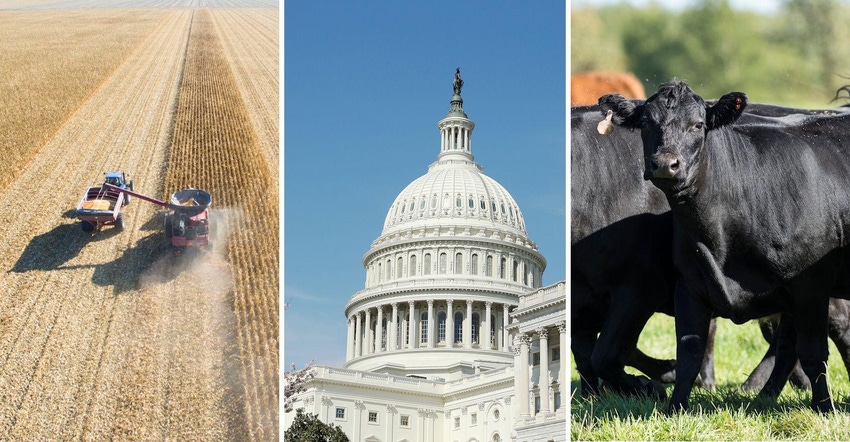
Solar power
In Kansas, plans for the largest solar farm in the state have started. The project will be the West Gardner Solar Project by NextEra Energy. SO far, 2,000 acres have been signed up for the project which is expected to generate 20 megawatts of power and could be online by 2023. Before construction can begin, details like setbacks and screen will be put in place by the Johnson County Planning Board. The main property makes it possible because of its proximity to the West Gardner substation.
Land rights
And in Ohio, farmers are taking note of what is going on in the legislature. In July, Governor Mike DeWine signed Senate Bill 52 into law, which limits landowern’s abilities and opportunities to have wind and solar projects on their property. This is a concern, because of the precedent it sets, government taking of landowner rights without the consent of the landowner.
Another piece of legislation, House Bill 349 also has direct implications on agriculture. The house bill enacts a section of the Ohio Revised Code to prohibits the construction of a new or modification by expansion of an existing concentrated animal feeding facility under certain circumstances.
Technology
And can you imagine herding your flock of sheep with a drone? Could they replace the herding dog?
Researchers from Charles Sturt University (CSU) in Wagga Wagga and the University of New South Wales (UNSW) in Canberra are testing specialised drones to see if they can replicate the work of farm dogs in mustering sheep.
A small flock of Merino sheep were fitted with heart-rate monitors to gauge their stress levels while being rounded up by a working dog compared with being herded by a drone.
UNSW Canberra visiting military fellow Kate Yaxley said the research team wanted to understand how a flock of sheep moved when being herded by a working dog compared with a purpose-built drone, called a Sky Shepherd.
We haven't tried ewes and lambs yet, this is really just the first time the drone has been out on a proper farm, so it's just a very basic trial at this point."
Drone developer Casper Kenworthy, from UNSW Canberra, was surprised by how quickly the sheep adapted to drone mustering.
Cattle rustling
In Brazil, officials are clamping down on cattle theft. Brazil is fighting castle rustling, revealing how thieves are swindling ranchers and stealing thousands of cattle and reselling them in other parts of the country. Police in Rio Grande do Sul have caught a criminal organization that sole approximately 12,000 head of cattle and then resold them over 1600 miles away.
The police first found out about the cattle thefts after 70 ranches reported being tricked into handing over their cattle for free. The cattle were collected from the ranches and the producers paid in post-dated checks connected to empty bank accounts. Police estimated the ranchers lost approximately 5.8 million dollars.
Drought
This year’s drought continues to threaten the livelihood of many cattle producers. One of who is Jim Stanko, in Steamboat Springs, Colorado. He fears he will need to sell off about half of his 90-cow herd because he can’t harvest enough hay to feed them. One field produced just 10 bales, that’s down from the 30 it produced in 2020.
Another rancher, Buzz Bates for Moab, Utah, who is selling 0 percent of his 200 cow-calf herd because an abandoned campfire destroyed part of his pasture.
However, some cattlemen are forced with a terrible choice: Sell the cattle they have selected the genetics for specifically or go into debt to purchase the hay needed to keep them fed.
This is the second year for many producers to cull cattle from their herd due to disappointing hay harvests.
Hog markets
While the weather may be impacting the cattle markets, a nationwide pork dealer is in trouble with the USDA for its buying practices. It is the second time in four years, Lynch Livestock has faced sanctions for cheating hog sellers out of hundreds of thousands of dollars. The pork dealer has been ordered to stop recording false weights for hogs delivered to its buying stations. To stop altering classifications of hogs delivered and to stop creating false scale tickets. Those practices violate federal law and the result is underpayment to producers.
Dog of the year
And a little bonus to get your weekend started:
Sonja Galley’s Australian shepherd, Bindi, is far more than a faithful companion and most trusted friend. She’s a lifesaver.
In spring 2020, while tending cows at her family’s central New York farm, Galley was knocked to the ground and trapped by an over-aggressive heifer when Bindi sprang into action and drove the animal away.
“I don’t know what the outcome would have been had she not been there,” Galley said. “I know that because of her, I was able to get out of the pen unhurt. I was in a compromised position that could have ended very badly.”
For her quick response, Bindi was honored with 2021 Farm Dog of the Year Award.
About the Author(s)
You May Also Like




